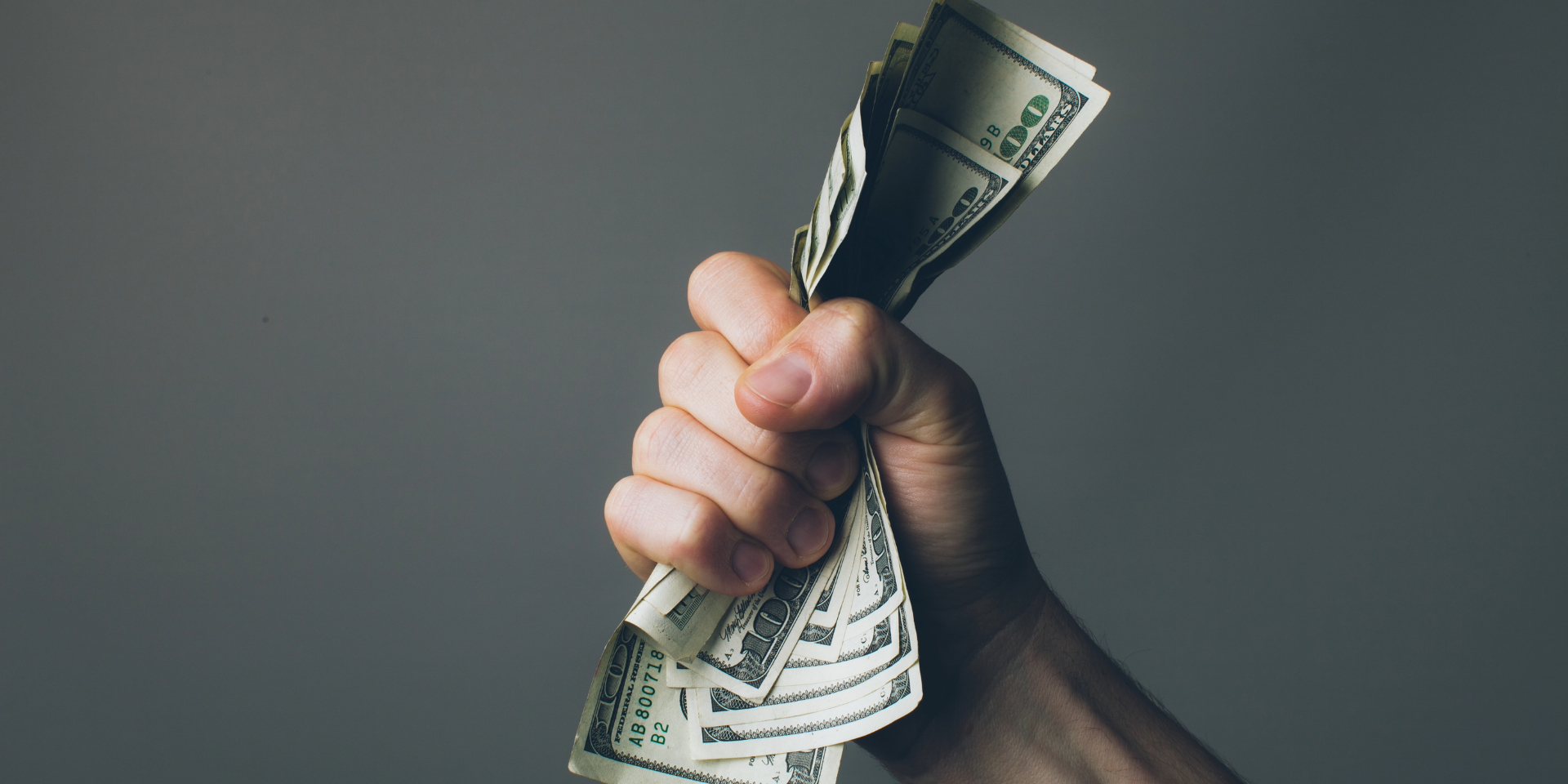In the late 1980s, Donald Trump was asked how much money it would take to make him happy. His answer? “Ten per cent more.”
The human heart has long been prone to believe the lie that just a little bit more will finally make us happy. In this pursuit of happiness, many of us find ourselves on what psychologists call the hedonic treadmill—the tendency to quickly return to a baseline of happiness despite gains in income or possessions. We get a raise, buy a new gadget, take a holiday and experience a rush of joy or excitement. But before long, that feeling fades and we’re once again chasing “one more thing.” This cycle not only keeps us from being content with what we have but often also makes us less inclined to be generous towards others.

When I was in my early twenties, I spent some time travelling through Asia. My heart broke as I came face-to-face with women nursing children on street corners while begging for food; orphans mistreated by their carers; refugees locked behind barbed wire and gun posts. I returned to Australia thinking I’d get a good career and live a minimalistic life so I could better help people such as these. But over time, I got busy and the weight of what I’d seen waned. I became more flippant with my expenses and found ways to justify my purchases and reduce how much I gave away. And it pains me to admit this—especially when I consider the millions of people around the world who are hungry, sick, unemployed, lonely, homeless or in danger.
Putting things into perspective
Most of us wouldn’t consider ourselves rich. But when we zoom out, we’re among the wealthiest, most privileged people on earth. The latest Global Wealth Report found that Australia is comfortably one of the richest countries in the world. In 2023, average wealth per adult increased by nearly 10 per cent—more than twice the growth rate of 56 other countries. That makes Australia the second-ranked nation in terms of median wealth behind Luxembourg, and fifth in terms of average wealth. In the United States, the poorest 20 per cent of individuals consume between three to 30 times more goods and services than the average person in developing nations.
Meanwhile, around the world, 50 per cent of child deaths are linked to hunger, and 35 per cent of the global population can’t afford a nutritious diet. Then there are the many who are fleeing war-torn countries with nowhere to go. Others live without clean water, without family, are victims of human trafficking and sexual exploitation, or are dying from injuries or sickness that, where we live, could be treated with ease.
Most of us are grappling with the rising costs of living, but I’d argue that much of what we label “necessities” are often still luxuries. Smartphones, subscriptions, beverages, beauty services, house plants, door mats, fancy tins of tuna . . . I could go on.
I don’t want to paint the picture that we’re failing terribly. We’re not. The United States, New Zealand and Australia are actually considered the top five most generous countries.
But when I look around, there are still so many people living over their capacity, not under it. Seven in ten Australians make purchases with buy-now-pay-later options, and just short of half live paycheck to paycheck. And I plead guilty. I know I could be wiser with my money for the sake of helping others. But I am often swayed by the myth of more.
The fault in our thinking
Thousands of years ago, the writer of the book of Ecclesiastes said, “Whoever loves money never has enough; whoever loves wealth is never satisfied with their income” (5:10). We tell ourselves more money and things will bring contentment, joy, peace and freedom. But the opposite is true. The more we acquire, the more we worry, the more we obsess, and the more anxious and dissatisfied we typically become.
Experts say we see around 100 advertisements a day, all of which are designed to override our rational minds and appeal to our subconscious fears and desires. But even before we had the media in our face, humans have been prone to think like Trump: just a little bit more, then I’ll be happy. Most of us never quite arrive there. The ancient proverb rings true: wealth is a liar. It promises what it cannot give. “For riches certainly make themselves wings, they fly away like an eagle toward heaven” (Proverbs 23:5).

Happiness is found in giving
Research continues to affirm the teachings of Jesus that claim happiness is found in a life of giving (Acts 20:35). In the book The Paradox of Generosity, sociologists said, “People rightly say that money cannot buy happiness. But money and happiness are still related in a curious way. Happiness can be the result, not of spending more money on oneself, but rather of giving money away to others.”
Studies show that generous people are healthier, less stressed, have higher life expectancy, stronger immune systems, lower blood pressure, are more interested in personal growth and have stronger relationships.[1] Sonja Lyubomirsky, a pioneer in happiness research from Stanford University, found that acts of kindness can even alter gene expression—activating DNA in ways that reduce inflammation and improve health.[2] In other words, if you want to be a happier, healthier person, it helps to shift your focus outward.
Where to from here?
We often think of “the poor” as those in extreme poverty, which raises complex societal questions about mental illness, addiction, and broken systems. But in the Bible, one of the definitions for “the poor” is “those who have need.”[3] Who around you has a need that you could help meet? Maybe it’s a meal, a room, a car repair or a bill that needs paying. If nothing comes to mind, take some time to research organisations or individuals who are doing work around the world that you feel drawn to support.

For those of you who are truly scraping the barrel to get by, there are ways you can extend generosity that don’t require money: your time, kindness, influence or possessions.
Living a generous life requires intentionality and planning. That might mean setting limits on your spendings, giving something up, or regularly setting aside a portion of your income or time to bless others.
As Saint John Chrysostom, Bishop of Constantinople, once said, “[We] must use [our] wealth to the good of all the people around [us] . . . this is the hardest skill of all. It requires both great wisdom and moral strength. Look at how many rich people fail to acquire it and how few practice it to perfection.”
For me and for you
This article is a reminder to myself as much as I hope it’s an encouragement to you. It’s so easy for us to rationalise our expenses as essential to our well-being and personal comfort. To get caught up adorning our homes, travelling the world, adding to our wardrobes, and splurging on wishlist items.
But may we remember that there’s a world of people in need. May we learn when to draw a line in the sand and say, “Enough is enough—I have all that I need.” And may we remember that living generously won’t leave us on the short end of an unequal bargain. Rather, it will give us what we most deeply desire: purpose, happiness, and health. Things money can’t buy.
Zanita Fletcher is a life coach and assistant editor for the Australia/New Zealand edition of Signs of the Times. She writes from the Gold Coast, Queensland.



















